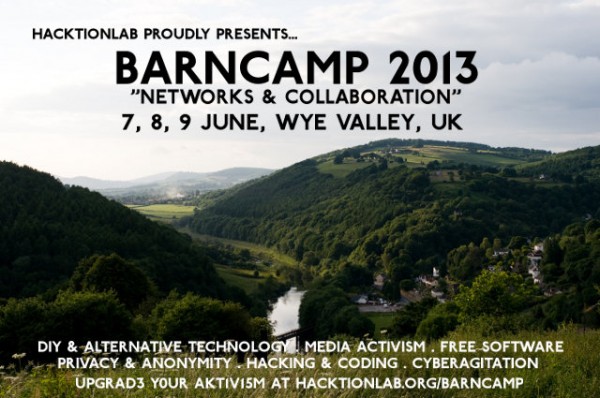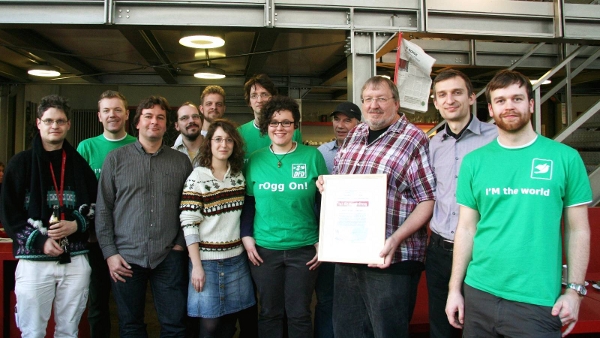Regular readers will realise that Bristol Wireless has grave concerns about the Communications Data Bill, otherwise known as the Snooper’s Charter (news passim).
As an organisation we contacted the Home Office urging for proper consultation on the Bill, which is currently being redrafted.
However, it now appears that the Home Office is not interested in a wide-ranging consultation on the Bill and has effectively stuck two fingers up at that idea, as evidenced by the response below, which was received from them today by email.
Dear Mr Woods,
Thank you for your email of 21 March about proposals for legislation on communications data and, in particular, about the degree of consultation during the process of redrafting the Communications Data Bill.
Communications data is the context not the content of a communication: who was communicating; when; from where; and with whom. It includes the time and duration of a communication, the number or email address of the originator and recipient, and sometimes the location of the device from which the communication was made. It does not include the ‘what’ – i.e. the content of any communication such as the text of an email or a conversation on a telephone.
A Draft Communications Data Bill, containing measures to maintain the ability of the law enforcement and intelligence agencies to access communications data, was published on 14 June 2012.
The Draft Bill has undergone a very thorough pre-legislative scrutiny process since that point by a Joint Committee of both Houses. This included public evidence sessions with a wide range of public bodies and interest groups, and a call for written evidence which provided an opportunity for public participation. The Committee considered all of this evidence during the scrutiny process and in developing its conclusions. The Intelligence and Security Committee (ISC) has also conducted its own, independent, inquiry into the Draft Bill, as this is an area that impacts on the work of the intelligence agencies.
The Joint Committee reported on 11 December 2012. The ISC issued a summary of their report and conclusions at the same time and published their full report on 5 February 2013. The Draft Bill and Joint Committee’s report are available on the Parliament website at: www.parliament.uk. The ISC report is available at: www.isc.independent.gov.uk.
In their findings, both Committees have recognised the need for new legislation. The ISC said: “The Agencies require access to CD – in certain tightly controlled circumstances and with appropriate authorisation – in the interests of national security. We recognise that changing technology means that the Agencies are unable to access all the CD they need, that the problem is getting worse, and that action is needed now. We accept that legislation to update the current arrangements governing the retention of CD offers the most appropriate way forward”.
The Joint Committee said: “The law enforcement agencies should be given the tools they need. Reasonable access to some communications data is undoubtedly one of those tools. Our overall conclusion is that there is a case for legislation which will provide the law enforcement authorities with some further access to communications data”.
The Joint Committee made a number of specific recommendations. The Home Office has considered these recommendations carefully, and accepts the substance of them all. In light [sic] of this, the Bill is currently being redrafted. As part of this process the Home Office is undertaking further consultation with key stakeholders on the changes we are making to the Bill in light [sic] of the Committees’ recommendations. This includes law enforcement agencies, other public authorities, technical experts and civil liberties organisations. This process is enabling these organisations to contribute to the redrafting process and the Home Office is giving very careful consideration to the points being raised.
New legislation is needed urgently to plug a growing gap in capability which is eroding the ability of law enforcement agencies to fight crime. The Government remains committed to introducing a revised Bill, which reflects the outcome of the pre-legislative scrutiny process and subsequent discussions, at the earliest possible opportunity. We would expect all those with an interest in the Bill to continue their participation as it goes through the legislative process itself, and the Government will remain open to their input.
Yours sincerely,
B McGuire
So there you have it: Bristol Wireless may have concerns as a small supplier of internet and telephony services, but we’re not a “key stakeholder”, so our views will be ignored.
We have something further to say to the Home Office on the illiberal measures contained in the Snooper’s Charter. The words were said by Benjamin Franklin some 240 years ago:
They that can give up essential liberty to obtain a little temporary safety, deserve neither liberty nor safety.
 In conjunction with both Fossbox and Flossie, BCSWomen, the British Computer Society’s specialist women’s group, is organising 3 open source career taster days for women in London next month.
In conjunction with both Fossbox and Flossie, BCSWomen, the British Computer Society’s specialist women’s group, is organising 3 open source career taster days for women in London next month.

 The
The 
 Bristol University’s news pages
Bristol University’s news pages 


 The
The 
 According to a
According to a  A day’s training in editing and using Wikipedia in Oldham (reputed home of the country’s best black puddings. Ed.)
A day’s training in editing and using Wikipedia in Oldham (reputed home of the country’s best black puddings. Ed.)  We’ve received details of yet another meet-up in London for users of
We’ve received details of yet another meet-up in London for users of 